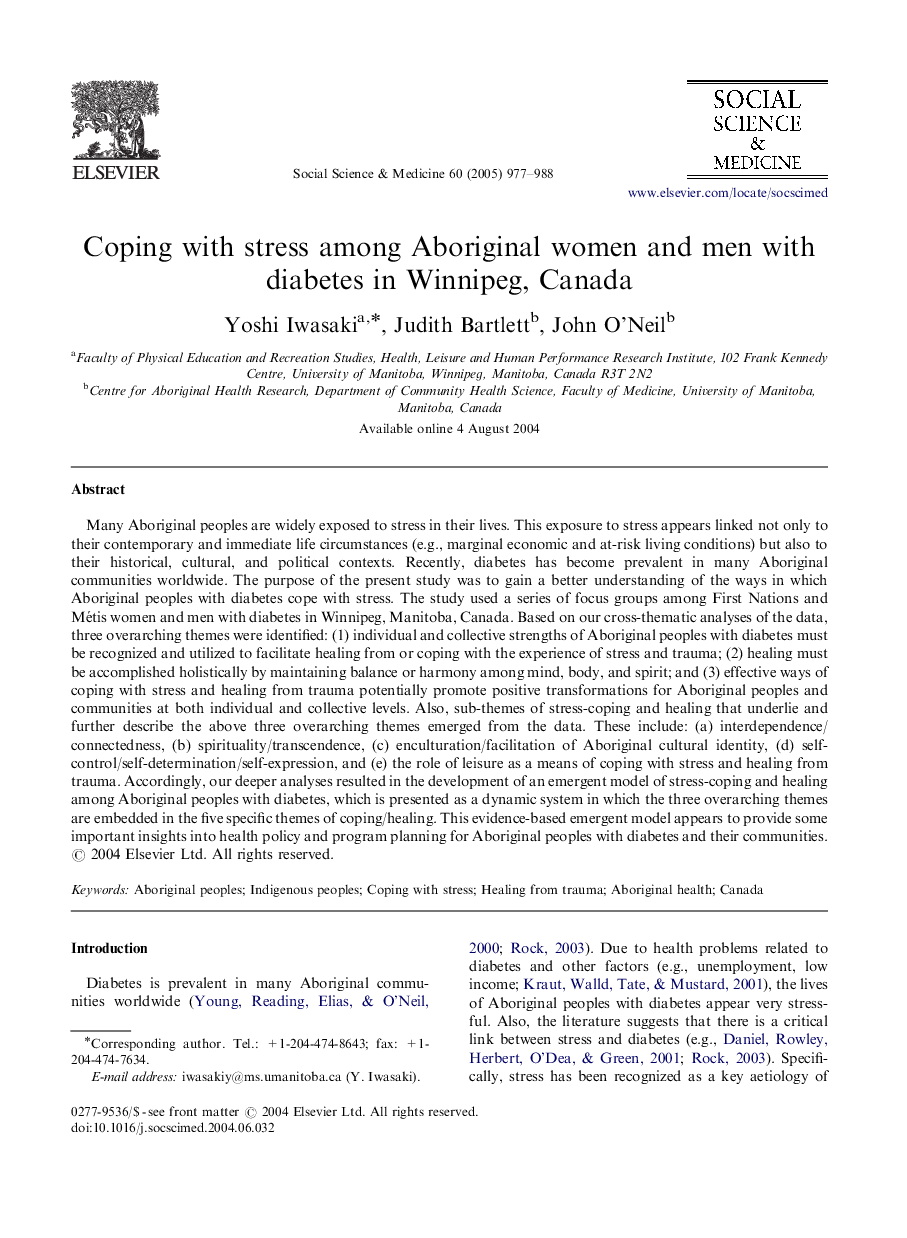| Article ID | Journal | Published Year | Pages | File Type |
|---|---|---|---|---|
| 10473234 | Social Science & Medicine | 2005 | 12 Pages |
Abstract
Many Aboriginal peoples are widely exposed to stress in their lives. This exposure to stress appears linked not only to their contemporary and immediate life circumstances (e.g., marginal economic and at-risk living conditions) but also to their historical, cultural, and political contexts. Recently, diabetes has become prevalent in many Aboriginal communities worldwide. The purpose of the present study was to gain a better understanding of the ways in which Aboriginal peoples with diabetes cope with stress. The study used a series of focus groups among First Nations and Métis women and men with diabetes in Winnipeg, Manitoba, Canada. Based on our cross-thematic analyses of the data, three overarching themes were identified: (1) individual and collective strengths of Aboriginal peoples with diabetes must be recognized and utilized to facilitate healing from or coping with the experience of stress and trauma; (2) healing must be accomplished holistically by maintaining balance or harmony among mind, body, and spirit; and (3) effective ways of coping with stress and healing from trauma potentially promote positive transformations for Aboriginal peoples and communities at both individual and collective levels. Also, sub-themes of stress-coping and healing that underlie and further describe the above three overarching themes emerged from the data. These include: (a) interdependence/connectedness, (b) spirituality/transcendence, (c) enculturation/facilitation of Aboriginal cultural identity, (d) self-control/self-determination/self-expression, and (e) the role of leisure as a means of coping with stress and healing from trauma. Accordingly, our deeper analyses resulted in the development of an emergent model of stress-coping and healing among Aboriginal peoples with diabetes, which is presented as a dynamic system in which the three overarching themes are embedded in the five specific themes of coping/healing. This evidence-based emergent model appears to provide some important insights into health policy and program planning for Aboriginal peoples with diabetes and their communities.
Related Topics
Health Sciences
Medicine and Dentistry
Public Health and Health Policy
Authors
Yoshi Iwasaki, Judith Bartlett, John O'Neil,
